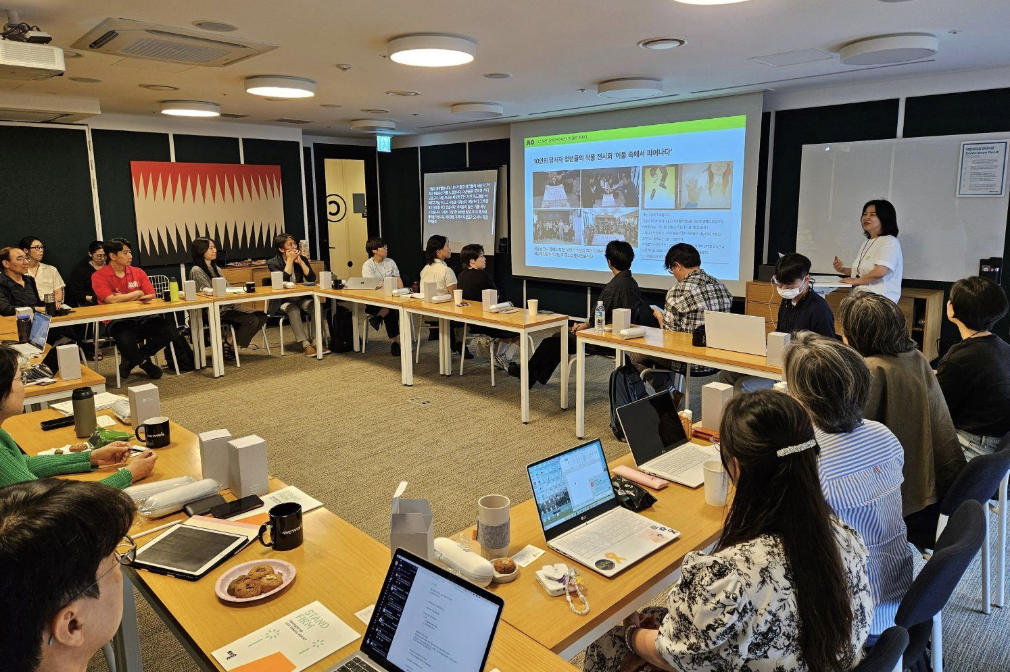🔸 Brian Impact developed tailored impact frameworks to objectively measure the achievements of 15 innovative organizations.
🔸 Quantified the efforts and results of organizations addressing various social issues.
🔸 The Foundation emphasized the importance of disseminating social outcomes and insights to enhance the social innovation ecosystem.

[SEOUL, REPUBLIC OF KOREA – July 18, 2024] Brian Impact has released the ‘Impact Report’ on its website, highlighting the innovative activities and achievements of the organizations selected for the second cohort of its Impact Ground program. This report provides an objective evaluation of the organizations’ tireless efforts and accomplishments in addressing social issues, aiming to facilitate greater impact.
Impact Ground is a flagship program of Brian Impact, designed to support the scale-up of innovative organizations with proven solutions to social problems, thereby expanding their social impact. The program assists non-profit organizations in amplifying their impact and driving substantial social change by supporting their unique solutions to social issues.
Brian Impact is committed to not only supporting organizations and individuals working to solve social problems but also to meticulously tracking their progress and sharing their know-how with society. Impact Ground adheres to a principle of ‘information disclosure,’ making business plans, presentation videos, and final reports available for download on its website to spread best practices and insights within the social innovation ecosystem.
Continuing from last year’s impact report, which evaluated six organizations from the first cohort, Brian Impact has now measured the impact of 15 organizations from the second cohort and recently published the results on its website. To conduct this assessment, the foundation developed customized impact frameworks based on the nature and characteristics of each organization’s work, summarizing their social achievements and collecting initial data to measure the impact of future initiatives supported by Impact Ground.
For example, the impact report for ‘Big Issue Korea’ analyzed outcomes using three methodologies: quantitative, qualitative, and monetized assessments. The report highlighted significant improvements such as securing stable housing for the homeless, enhancing their readiness for social participation, and changing public perceptions about homelessness. The analysis showed around a 10% improvement in four areas: self-perception of value and capability, motivation for future endeavors, use of skills and resources, and goal orientation. Additionally, big data analysis of media reports revealed a shift in the discourse about homelessness from a charity perspective to viewing the homeless as agents of self-reliance.
The impact report for the marine environment research organization ‘Osean (Our Sea of East Asia Network)’ measured the practical changes brought about by its ongoing projects to address marine litter issues. Osean’s impact was categorized into three areas: reducing the knowledge gap and contributing to policy changes in the marine litter field, enhancing the expertise of stakeholders addressing marine litter, and strengthening the foundation for network building and collaborative efforts. Notably, the report verified Osean’s influence in the East Asia region by analyzing the outcomes of networks established with 34 organizations across 10 countries.
Brian Impact directors Jin-Seok Park and Sang-Wook Cho, who oversee the Impact Ground program, stated, “We hope the impact report will help organizations dynamically expand their impact and drive positive changes among various stakeholders. We believe that impact measurement and management will highlight the efforts of these organizations more clearly, and Brian Impact will continue to build and continue this culture of data sharing for the public good.”